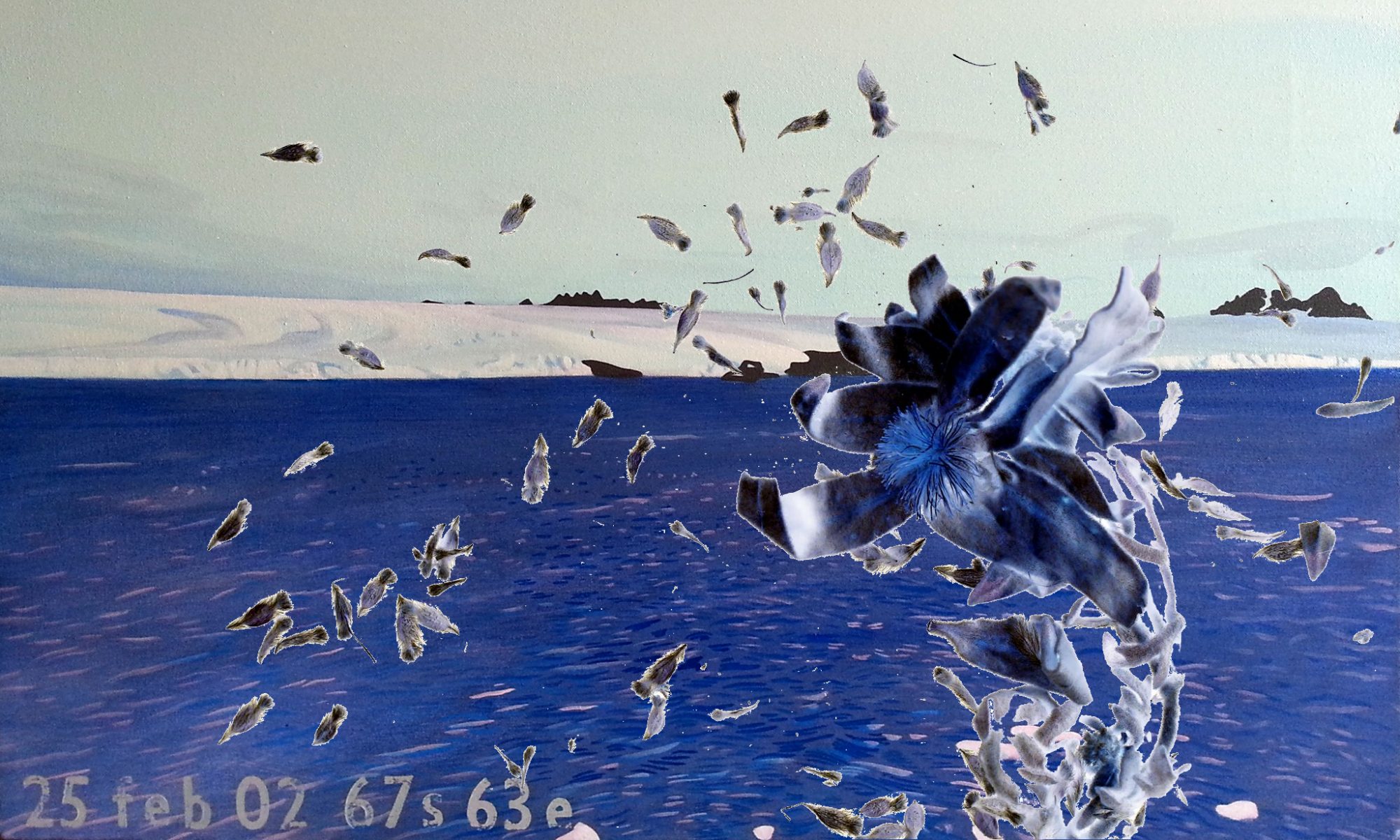The mirror has been used as a metaphor to evoke the effect a desert can have on a man.
Observing a cold-damaged mirror hanging on the wall outside Scott’s bunk, its silver coating peeled away, William Fox draws on this object as a metaphor for the explorer’s fate in Antarctica,”and to some extent the Antarctic itself” (2007; 9)”:
“The empty mirror embodies for me both the fact that Scott never returned and the essential hollowness of his achievement.”
Antarctica, Fox continues, is “a place where we expend more energy and informaion than we receive in return, another mirror with no back.” (2007; 10)
Browsing through Simon Pockley’s on-going on-line work, Flight of Ducks (1995-now), I found the following words by the author’s father, Dr. F.J.A. Pockley. Writing about his 1976 trip into central Australia, where he had already traveled in 1933, he could just as well have been writing about the Antarctic ice desert and the ‘lifechanging’ effects it has on many people.
The land is detached, indifferent, remote from all human emanations. There are no ghosts, no spirits, no aura of civilization. Impassive and neutral it makes no judgement, but merely reflects one’s self back on one’s self, one’s true self in a crystal-cruel mirror. A self acutely aware that it contains the fruits of other men’s genius down the ages and that this store has limitations.
